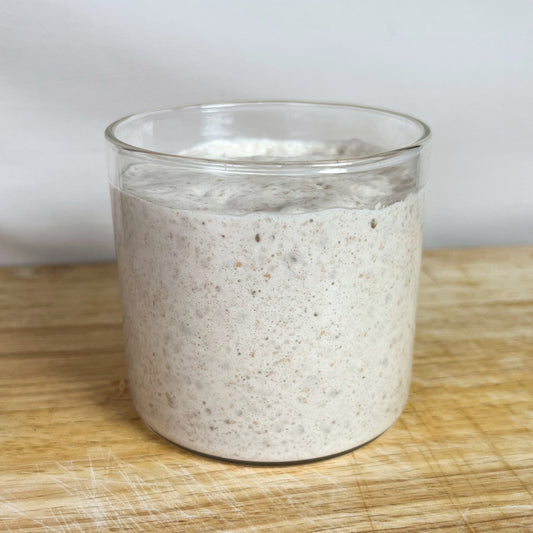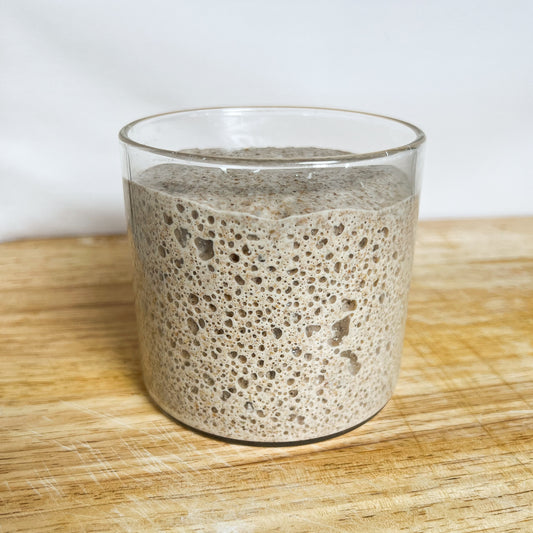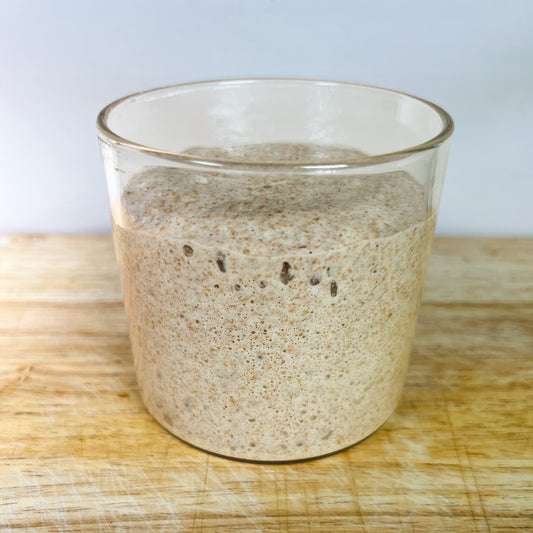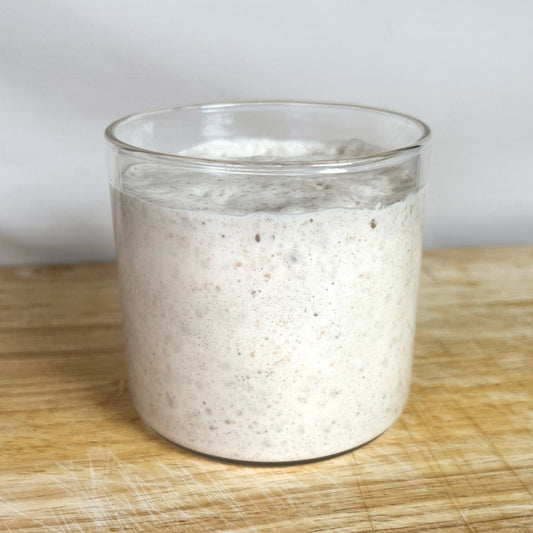The Benefits of Owning a Dough Scraper for Your Baking Needs

If you are a baking enthusiast or a professional pastry chef, owning a dough scraper is a must. This versatile tool has a wide range of benefits that can significantly improve your baking experience. In this article, we will explore the different types of dough scrapers, the materials used in their manufacturing, and the advantages of owning one in your kitchen.
What is a Dough Scraper?
A dough scraper, also known as a bench scraper, is a flat, rectangular handheld tool used to handle dough while baking. It is an essential tool for bakers and pastry chefs, as it makes working with dough much easier and more efficient. The scraper can be used to cut, divide, and shape dough, as well as to clean up work surfaces.
The dough scraper is typically made of metal, plastic, or wood and has a straight, smooth edge on one side and a rounded, curved edge on the other. The straight edge is perfect for cutting and dividing dough, while the curved edge is ideal for scraping dough out of bowls and measuring cups.
Buy our Metal Bench Scraper or Plastic Bowl Dough Scraper here.
Types of Dough Scrapers
There are two main types of dough scrapers: metal and plastic. Metal scrapers are usually made of stainless steel and are ideal for heavy use in commercial kitchens. They are strong, durable, and can withstand high temperatures. Metal scrapers are also easy to clean and sanitize, making them a popular choice for professional bakers.
If you're looking for a more affordable option, plastic scrapers are a good choice. They are lightweight, durable, and easy to handle. Plastic scrapers are also available in a variety of colors, making it easy to color-code your tools and avoid cross-contamination.
Materials Used in Dough Scrapers
Dough scrapers can be made of different materials, each with its own advantages and disadvantages. Metal scrapers are easy to clean, durable, and resistant to wear and tear. They are also heat-resistant, making them ideal for use with hot dough and other baked goods.
Wooden scrapers are eco-friendly, have a natural appearance, and are gentle on delicate dough. They are also less likely to scratch your work surface than metal or plastic scrapers. However, wooden scrapers require more maintenance than other types of scrapers, as they can absorb moisture and become warped or cracked over time.
Finally, plastic scrapers are lightweight, affordable, and heat-resistant. They are also easy to clean and sanitize, making them a popular choice for home bakers. However, plastic scrapers are not as durable as metal or wooden scrapers and may need to be replaced more frequently.
In conclusion, a dough scraper is an essential tool for any baker or pastry chef. Whether you choose a metal, plastic, or wooden scraper, it will make your work with dough much easier and more efficient. So next time you're in the kitchen, don't forget to grab your dough scraper!
Improved Dough Handling and Shaping
Owning a dough scraper can make a significant difference in the way you handle and shape your dough. Not only does it make the process more efficient, but it also helps you achieve a more consistent and professional result. Here are some advantages:
Precise Portioning
Dough scrapers can help you divide your dough into precise portions, ensuring that each baked product is consistent in size and shape. This is especially important if you're making bread or pastries that need to be uniform in size for even baking. With a scraper, you can easily cut your dough into equal pieces and shape them accordingly.
For instance, if you're making croissants, you can use a scraper to cut your dough into triangles of the same size. This ensures that each croissant is the same length and width, which is essential for even baking. Similarly, if you're making buns, you can use a scraper to divide your dough into equal portions, resulting in buns that are the same size and shape.
Efficient Folding and Kneading
Using a scraper to fold and knead your dough is much more efficient than using your hands. It helps you achieve a consistent texture, distribute ingredients evenly, and saves you time and effort. When you're folding your dough, a scraper can help you lift and fold the dough without sticking to your hands or the work surface.
Similarly, when you're kneading your dough, a scraper can help you fold the dough over itself, press it down, and turn it. This helps you develop the gluten in the dough and achieve a smooth, elastic texture. It also prevents the dough from sticking to your hands or the work surface, which can be frustrating and messy.
Creating Smooth and Even Dough
A scraper lets you smooth out any rough or uneven areas in your dough, resulting in a more professional look and a better texture when baked. It also helps you remove any excess flour or dough from your work surface, which reduces wastage and ensures a cleaner workspace.
For example, if you're making pizza dough, you can use a scraper to smooth out any bumps or lumps in the dough. This ensures that the pizza crust is even and smooth, which is essential for a good presentation and texture. Similarly, if you're making pie crust, you can use a scraper to remove any excess dough from the edges and create a clean, uniform edge.
Overall, a dough scraper is a versatile and essential tool for any baker. It can help you save time, achieve a more consistent result, and create baked goods that look and taste professional.
Time and Effort Savings
Owning a dough scraper can save you both time and effort while baking. Here are some benefits:
Faster Clean-up Process
By using a scraper to remove excess dough and flour from your work surface, you can reduce the time and effort required to clean up your workspace. This is especially useful if you are working in a busy kitchen.
Imagine this: you've just finished kneading your bread dough and you're left with a sticky, messy work surface. Without a dough scraper, you'd have to spend a significant amount of time and effort trying to clean up the mess with a cloth or sponge. However, with a dough scraper, you can easily scrape away any excess dough or flour and clean up the surface in no time. This means you can spend more time focusing on the actual baking process and less time on cleaning up.
Reduced Dough Waste
A dough scraper can help ensure that you extract all possible dough from your mixing bowl or work surface, reducing wastage and saving ingredients. It also helps you handle sticky dough with ease, ensuring that none of it is left behind.
When you're working with dough, it's important to ensure that you're using every last bit of it. This not only saves ingredients and reduces waste, but it also ensures that you're getting the most out of your baking efforts. A dough scraper can help you do just that. By using it to scrape every last bit of dough from your mixing bowl or work surface, you can make sure that none of it goes to waste. Additionally, if you're working with particularly sticky dough, a scraper can help you handle it with ease and prevent any of it from being left behind.
Improved Workspace Organization
Using a scraper to move ingredients around your workspace can help keep things organized and reduce clutter. This makes it easier to work efficiently and makes everything more accessible when you need it.
When you're in the middle of a baking project, things can quickly become disorganized and cluttered. However, by using a dough scraper to move ingredients around your workspace, you can keep things organized and reduce clutter. For example, if you need to move a batch of dough from your mixing bowl to your work surface, a scraper can help you do so without making a mess or getting your hands dirty. This means that everything stays in its place and is easily accessible when you need it, making the baking process much more efficient.
Versatility in the Kitchen
A dough scraper is a versatile tool that can be used for multiple tasks in the kitchen. Its uses go beyond just scraping dough!
Cutting and Dividing Ingredients
One of the most common uses of a scraper is to cut and divide ingredients for your recipes. With its sharp edge, you can easily cut through butter, fruits, and vegetables. You can also use it to divide dough into portions for baking.
For example, if you're making a fruit tart, you can use the scraper to slice the fruit into thin, even pieces. Or, if you're making a vegetable stir-fry, you can use the scraper to chop the veggies into bite-sized pieces.
Transferring Dough and Ingredients
Another great use of a scraper is to transfer dough and other ingredients from one place to another. Its flat edge makes it easy to scoop up dough from a mixing bowl and transfer it to a baking sheet.
Similarly, if you're working with chopped vegetables or fruits, you can use the scraper to transfer them from the cutting board to the pan. This is especially helpful if you're working with sticky or wet ingredients that might be difficult to pick up with your hands.
Multi-Purpose Tool for Various Recipes
While a dough scraper is often associated with baking tasks, it's actually a multi-purpose tool that can be used for cooking and preparing other meals as well.
For example, you can use it to chop herbs finely. Simply place the herbs on a cutting board and use the scraper to chop them into small pieces.
If you're cooking with a skillet, you can use the scraper to scrape away any burnt bits that might be stuck to the bottom. This can help prevent your food from sticking and burning.
Overall, a dough scraper is a must-have tool for any home cook. Its versatility and usefulness make it an essential tool in the kitchen!
Conclusion
In conclusion, owning a dough scraper is a smart investment if you are serious about baking. It can significantly improve your dough handling and shaping, save you time and effort, and offer versatility in the kitchen. With its affordable price and range of benefits, this handy tool is a must-have for any baking enthusiast or professional pastry chef.




